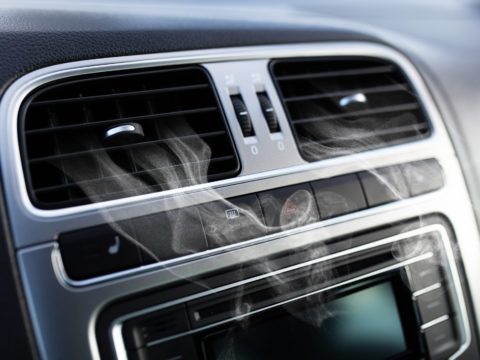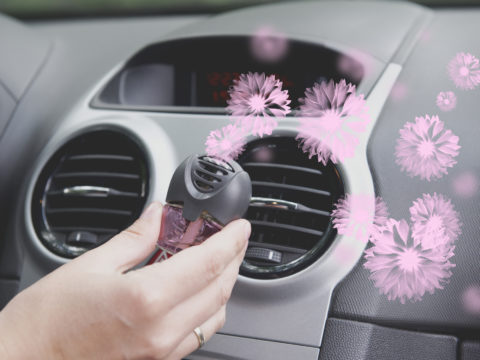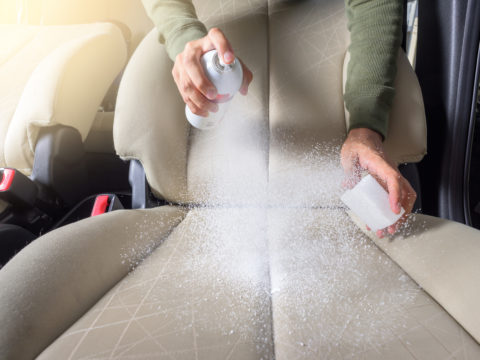Mice love vehicles. They particularly like the ventilation system because it is easy to access and secure. Unfortunately for us, mice also smell…and that can make for one miserable drive.
If you have mice smells in your vent system, hope for the return of clean, fresh air is not lost. You can remove the mice, sanitize the affected area, or cover the smell.
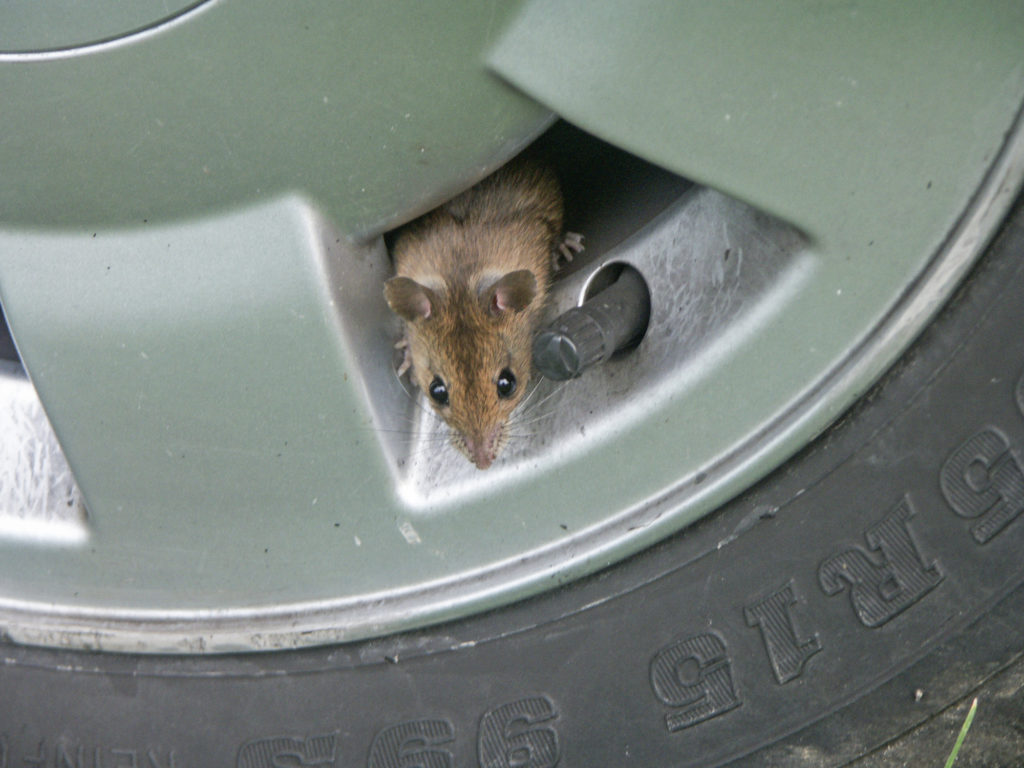
Contents
Why Do You Have Mouse Smell in Car Vents?
A dead mouse might not be the only kind inhabiting your vehicle. Mice also travel into your ventilation system to nest…and they may leave some unpleasant droppings in their wake. Then, to top it all off, heat can amplify those already pesky smells.
Here’s an in depth look at each cause.
Death
Death is the most common cause of mouse smells in a vehicle, and there are a lot of ways a mouse can die in a car.
They could be sick, old, or injured when they crawl up inside your vents. They could injure themselves on any of the moving parts in a vehicle. They could get stuck in a vent and starve to death. They could be cooked in the heat of the engine.
Not very pleasant to think about.
When a mouse dies in your car, it decomposes, which smells. If the odor is really bad, you’re likely getting a whiff of rotten mouse flesh, fluids, and organs. Thinking that’s disgusting? We agree with you.
Nesting
Mice also create nests that, in a comparatively open space, like the walls of a home, leave little or no odor. In a confined space, like a vehicle’s ventilation system, that nest can give off a distinctive smell.
In that nest are mouse droppings, food, little mice, and all sorts of materials to build a nest, some of which aren’t the best quality.
Heat
Dead or live mice, nests, food, and nesting material odors all grow when heat pushes through the vents. That heat dries and cooks everything left over, turning a grim situation into a rodent stew of sorts. While that smell will eventually dry up and go away, it takes its sweet time traveling throughout your vehicle in the meantime.
Heat also accelerates the process of decomposition. The same process that makes a human corpse rot and smell happens to the mouse, but on a smaller scale. The good news if you cannot locate the deceased critter is that its smell will dissipate quicker than a decomposing human body or larger animal.
Animal Waste
Mice are small, so you wouldn’t think their waste smells that much. When you find droppings in your home, you usually don’t smell anything.
Mice are not hygienic and will leave droppings and urine all over their nesting area. Left alone, that eventually builds up, and if the pile of excrement is large enough, you will smell it.
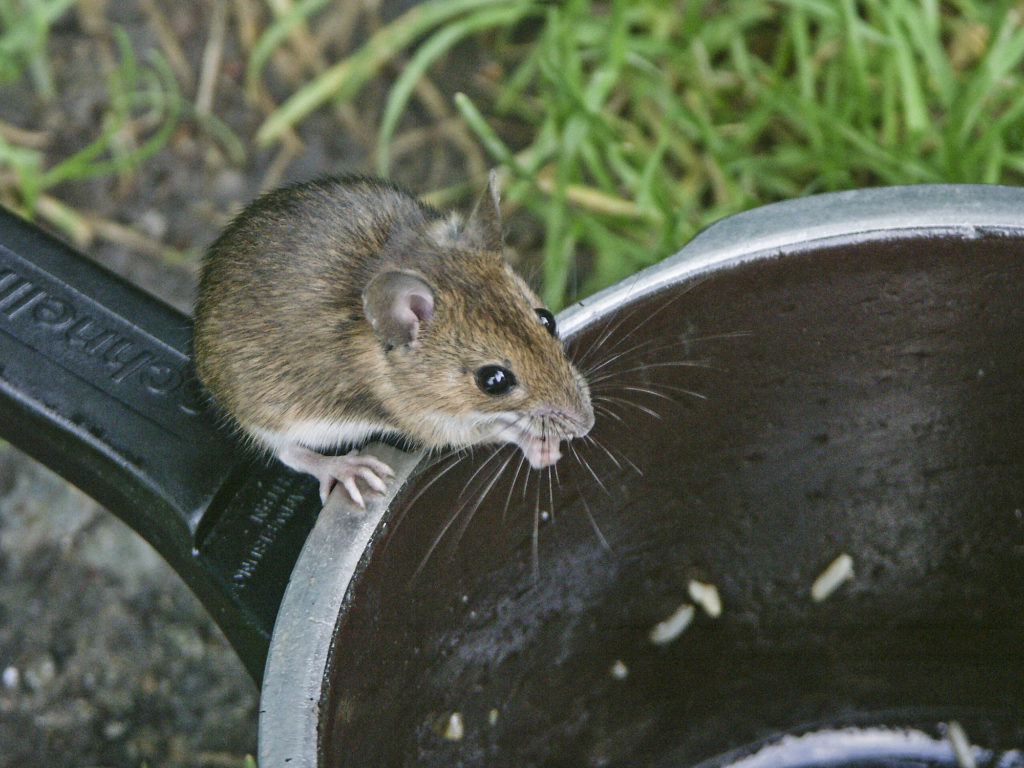
How To Get Rid of Dead Mouse Smell in Car Vents?
If you have a dead mouse or live mouse smells permeating your vehicle, you do have a few options to rid yourself of the stench.
Locate, Remove, Sanitize
The most logical step to remove a mouse smell is to find where the mouse has nested or died and remove it. That can entail a lot of detective work and having to pull apart your vents. Then you have to sanitize where it died or nested. To do this, follow these steps.
Step 1: Sanitize
Before removing the mouse, mice, or nest, combine a half-cup of bleach with five cups of water in a spray bottle. Spray the mouse and the surrounding area until everything is saturated. The mixture will kill bacteria that can cause smells and make you or your passengers sick. The bleach smell will also mask any decomposition odor.
Step 2: Removal
Remove the mouse (use gloves,) place it in a plastic bag and seal the bag. If you are removing a nest, put it in a plastic bag and seal it. You should also replace any air filters associated with your ventilation system. Your vehicle manual will indicate where to find vent air filters. Place the bags in the trash.
Step 3: Sanitize Again
Use a commercial disinfectant on the affected area, and to the greatest extent possible, saturate the area before wiping it clean.
Step 4: Vinegar Is Your Friend
Spray the area and any exposed vents with vinegar as it disinfects further and fights odors. Let that dry and repeat the process two more times.
Step 5: Absorb Residual Odors
Use baking soda or another odor neutralizer near the source of the smell.
Hire a Pro
If you cannot locate the mouse or get to it, you can consult with your mechanic about how to go about ridding yourself of the odor. If they can’t do it (or won’t do it,) they likely can recommend someone that can.
The next two approaches are not optimal, but they are options if you cannot find the mouse or get to it.
Grin and Bear It
If the smell is not horrific, you could suffer through it. Suffering through a mouse smell, particularly a dead mouse, is not ideal by any means, but mice smells generally will disappear after a week or two. If you go this route, keep in mind that there is a health hazard associated with this approach.
Mask It
Hiding the smell is not safer than living with it, but it is slightly less malodorous. Use an odor neutralizer and then overpower the smell with a deodorizer. If you can narrow the smell to a specific vent, focus your efforts on that vent.
How To Get Rid of Mouse Urine Odor
Follow the steps above to remove the mouse and its nest. If the only issue is urine, once you sanitize, focus on using vinegar to kill the odor.
Where To Look for a Dead Mouse in a Car
A dead mouse can be just about anywhere in a vehicle. The obvious starting point is your ventilation system, but mice can eat into seats, burrow under floor mats, and even find places to nest in the engine block.
Start with identifying where the odor is the most intense. Once you do that, methodically start to pull apart everything in the vicinity. Make sure you go slowly and note what you are doing so you can put it all back together once you find the source.
If you cannot find where the mouse is, enlist a vehicle detailer or your mechanic. Chances are both have dealt with this issue before.


